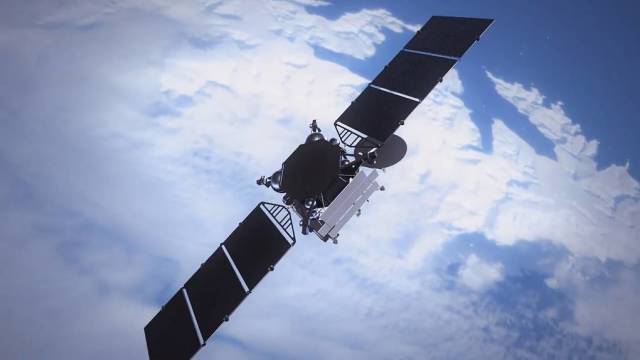The Arktika-MP spacecraft will be the first to be launched, which will provide hydrometeorological information, including weather forecasts on a regional and global scale
MOSCOW, October 1. /tass/. From 2025 to 2034, Russia plans to launch a series of hydrometeorological satellites for remote sensing of the Earth, in particular the Arctic region. This was announced by Sergey Zaitsev, Director of the Department of Scientific and Technical Projects of the Roscosmos State Corporation, at the Presidium of the Russian Academy of Sciences.
"Today in our country we are trying to pay maximum attention to the hydrometeorological direction, so we have formed a triad of space systems. These are spacecraft placed in geostationary orbit, highly elliptical space systems beyond northern latitudes, this system is unique in the world, and a low-orbit segment represented by Meteor-M satellites," he said.
In particular, it is planned to launch the Arktika-MP spacecraft in 2025. It will provide hydrometeorological information, including weather forecasts on a regional and global scale - the forecast and state of the waters of the seas, oceans, the Northern Sea Route, conditions for aviation flights, the heliogeophysical situation in near-Earth space, the state of the ionosphere and the Earth's magnetic field.
The satellite will also relay signals from the COSPAS-SARSAT emergency beacons.
According to his presentation, in 2026 it is planned to launch the Resurs-PM high-precision observation spacecraft, in 2032 it is planned to launch the Ionosphere-M-OP, Meteor-MP and Stereoscope satellites into orbit. The Resurs-PM device will carry out mapping, monitor emergency situations, and receive data to search for hydrocarbon resources.
About satellites
Ionosphere-M-OP is a new generation spacecraft for studying space weather (heliogeophysical conditions). The satellite will observe the Sun and solar activity, monitor the state of the ionosphere and geomagnetic activity. The Meteor-MP spacecraft will provide initial hydrometeorological data on a global scale for making weather forecasts, monitoring dangerous weather events and warning of their approach, monitoring radiation and heliogeophysical conditions. The Stereoscope is a new generation spacecraft for Earth observation.
In 2034, it is planned to launch the Okean spacecraft into orbit to analyze and forecast the state of the waters of the seas, oceans, ice cover in the Arctic and Antarctic, control natural and man-made emergencies, control the state of the aquatic environment, monitor fishing areas of the oceans and inform the fishing fleet.
Answering the question of whether there are analogues of the Starlink system in Russia, he noted that this system is "not so optimal in terms of construction and cost of its creation." "We proposed another Skif system in high orbits, it included a smaller number of spacecraft, we remain its adherents," Zaitsev said.
Valentin Mikhailov, Corresponding Member of the Russian Academy of Sciences, spoke about the use of satellite radar interferometry to solve problems of seismology, volcanology and mining. "I find it difficult to name areas in Earth sciences in which satellite data would not be used in one way or another. This happens wherever a wide range of environmental management tasks and so on are being solved," he noted.
Yuri Tsyba, Deputy Head of the Department of the Federal Service for Hydrometeorology and Environmental Monitoring, spoke about the use of space systems to solve problems of hydrometeorology and environmental monitoring in the interests of the Russian Federation. "Space systems play a primary role in ensuring the hydrometeorological safety of Russia. <...> Without satellite data, it is impossible to solve such tasks as monitoring and forecasting of the hydrometeorological and geophysical situation, control of dangerous phenomena, monitoring of climate change, environmental pollution. <...> The growing problems associated with climate change and negative trends in the development of the geopolitical situation increase the demand for remote sensing data, making them strategic," Tsyba stressed.
Also, during the meeting of the Presidium, it was decided to award the A. A. Grigoriev Prize, which is awarded for outstanding scientific work in the field of physical geography. The prize for 2024 was awarded to academician Alexander Chibilev for the monograph "Steppe Eurasia: a regional overview of steppe diversity".

